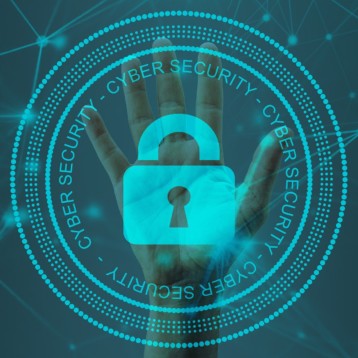With the astounding improvements in widely accessible hacking and image manipulation technologies, attackers feel they can steal or fake anyone’s ID to establish or take over accounts, eventually robbing consumers and companies. To avoid becoming a victim of fraud, it’s important to use reliable identity verification software.
This article covers all the basics of identity verification, so you can rest easy knowing your clients are who they say they are and keep your company secure.

What Is Identity Verification (IDV)?
Simply put, IDV is the process of verifying a person’s true identity. The verification process typically involves requesting government-issued identification.
But why is it so crucial? With a recent pandemic causing an uptick in internet business, identity theft and fraud have become more commonplace in the digital era. To the point that as many as 70% of businesses are increasing their internet presence.
Businesses can safeguard themselves, their clients, and their assets with a strong identity verification procedure.
What Is Digital Identity Verification?
Digital identity verification relies on identity verification software to make sure a user’s digital identity matches their real-life identity.
Identity Verification: Know Your Customer vs. Anti-Money Laundering
Know your customer, or KYC, refers to the practice of verifying a customer’s identity and motives before doing business with them. However, the goal of AML, or anti-money laundering, is to keep dirty money out of the banking system. Therefore, organizations that deal with money must have KYC and AML identity verification protocols.
Methods of Identity Verification
There are several ways to verify someone’s identification. Some examples are:
- Identity document verification. The term “document verification” refers to the process of establishing the legitimacy of a legal identification document, such as a passport or driver’s license.
- Biometric verification. To verify an individual’s identification, biometric verification systems use complex algorithms to study identifying characteristics (biometrics), including fingerprints and facial geometry.
- Liveness detection. The purpose of liveness detection is to rule out the use of a sham or doctored image in the identity verification procedure.
- Knowledge-based authentication (KBA). This is the process of asking individual questions to which only they would have a legitimate response. Such as credit card numbers, former residences, and other sensitive information.
- eIDV (electronic identity verification). eIDV, also known as a KYC data check, verifies client data such as name, date of birth, address, and SSN against authoritative data sources.
- eID (electronic identification). Typically provided by banks or governments, an eID is a digital identification proof. In the context of digital signatures, it serves as a means of authentication and login.
These are just a handful of the many possible methods of establishing someone’s identity. With these methods, you can establish a risk-based identity verification procedure for your businesses.
Why Is Identity Verification Necessary?
Now that you have a better understanding of identity verification and how it works for your organization, we can go on to discuss the benefits.
Preventing Fraud
The purpose of identity verification is to stop fraudulent activity. By confirming your users’ identities, you can guarantee they’re not using someone else’s information.
When dealing with financially or personally sensitive information, it’s even more important to take extra precautions to avoid fraud.
Conform to AML Laws
Maintaining legality is also essential. There are rules and regulations in effect across various sectors that require companies to take steps to confirm the identities of their customers. Depending on where you live, a wide variety of organizations are responsible for enforcing these rules.
Safeguard Information
Identity verification helps restrict access to sensitive information to those who need it. Therefore, companies need to handle private information from customers, such as credit card details.
Optimize Your Customers’ Experience
The satisfaction of customers is paramount in the modern digital era. If users feel secure and care about using your service, they are more inclined to stick with it. They’re also more likely to tell others about how great your services are.
That’s why it’s crucial to have a reliable identity verification system in place to avoid upsetting your clients. Verifying users guarantees they are who they say they are and aren’t using someone else’s information. This can minimize customer irritation and boost satisfaction.
Fight Financial Crimes
Identity verification software helps fight financial fraud as well as fraud in general. Businesses can verify a user’s identification to avoid dealing with fake credit cards or bank accounts. This can help minimize fraud and chargebacks.

Final Thoughts
In general, clients are more likely to feel safe doing business with a company that follows identity verification best practices and uses identity verification software. By taking these extra measures for customer authentication and data protection, businesses can reassure their clients that their information is secure with them. This has the potential to boost customer satisfaction and confidence in the company.










